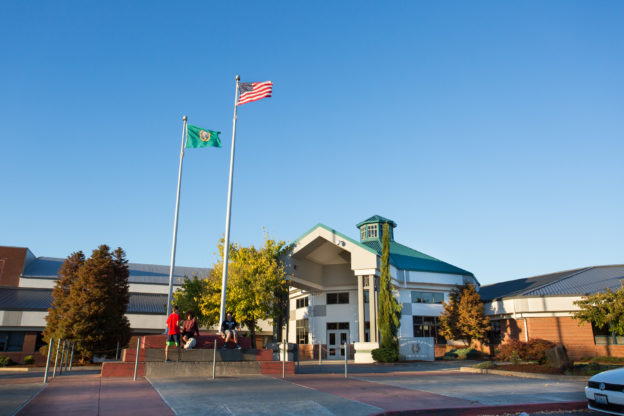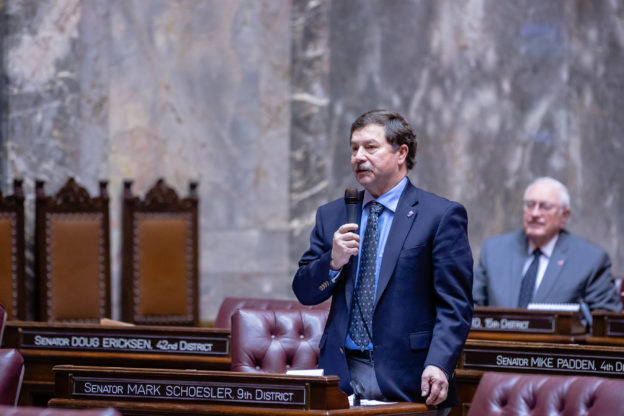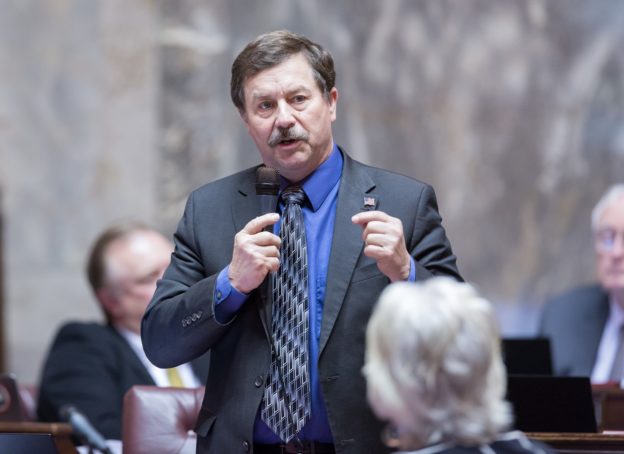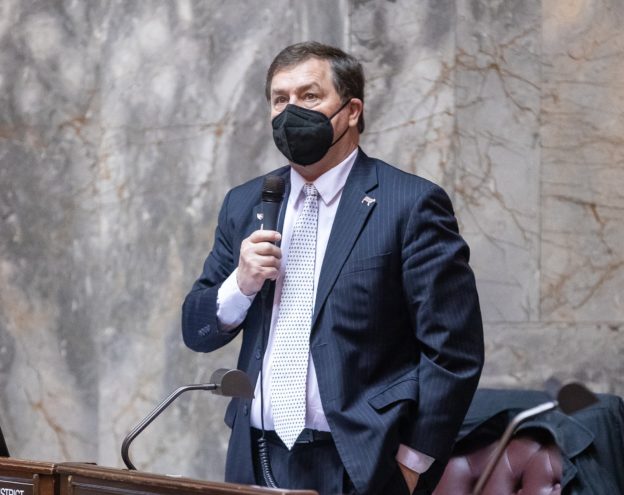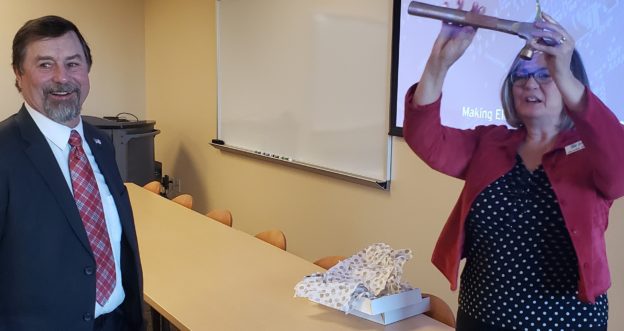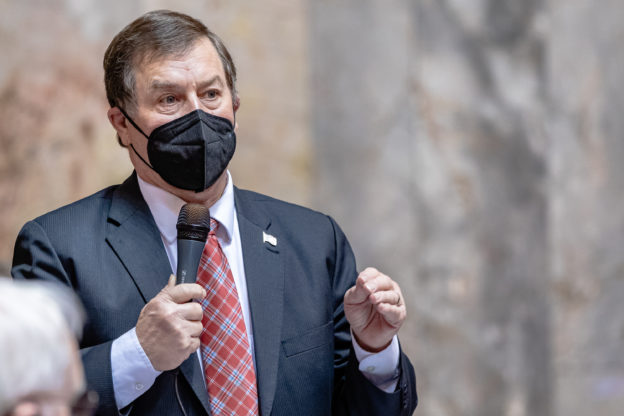State government, including the Legislature, needs to do more to help combat the increase in retail crime in Washington, says 9th District state Sen. Mark Schoesler.
“While we’ve seen a spike in many areas of crime, retail theft and other retail crimes are especially a problem,” said Schoesler, R-Ritzville. “Retail crimes hurt not only stores and shops, but also consumers because these crimes force retailers to raise prices. The Legislature, the governor and the attorney general need to take action to greatly reduce retail crime in Washington.”
From 2019 to 2020, the value of goods stolen from Washington stores more than doubled. The Washington Retail Association estimates organized crime groups stole $2.7 billion from retailers in 2021.
“Retailers have been forced to endure an increase in crimes occurring on their property, including theft and fraud,” said Schoesler, R-Ritzville. “Organized retail-theft rings have become more brazen, violent and sophisticated in targeting stores. They are putting the safety of customers and store employees in danger. Also, they’re often involved in other crimes within communities, including human trafficking, money laundering and narcotics. These theft rings go after not only stores and shops in big cities but also those in small towns. It’s a growing problem in many parts of our state and the U.S.”
Schoesler, a member of the Senate Labor, Commerce and Tribal Affairs Committee, said the Washington Retail Association recently released a resource guide on how to deal with retail crimes.
“Retail crimes, especially theft, have become so much worse in recent years that the Washington Retail Association just released a retail-crimes resource guide for its members,” added Schoesler. “To me, that says the state isn’t providing enough help for retailers and local and state law enforcement agencies don’t have enough officers to effectively combat retail theft.”
The Senate Labor, Commerce and Tribal Affairs Committee last week held a work session on retail crimes.
“The work session was a sign that organized retail crime is on the Legislature’s radar screen, but we need to make it a high priority when the legislative session starts in January,” said Schoesler.
A national report on the impact of organized retail crime showed that Washington retailers lost just over $2.7 billion worth of goods and products due to theft in 2021, and that the per capita amount of stolen items in the state is $376.61, which ranks Washington second in the nation, only behind Pennsylvania ($436.25).
According to the 2021 state crime report released by the Washington Association of Sheriffs and Police Chiefs, 23,323 shoplifting cases were reported last year.
According to respondents to a 2022 retail security survey conducted by the National Retail Federation, Loss Prevention Research Council and Appriss Retail, organized retail-crime incidents have increased by 26.5%. The same survey reported that more than 81% of participating retailers said organized retail-crime offenders are somewhat or much more violent compared with one year ago.
In 2021, Seattle ranked eighth among large cities affected by organized retail crime.











